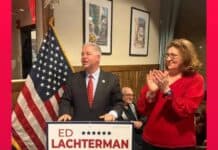
8 Year Prison sentence, and total payment of $9 Million due; Funds used for county club and winery
On Feb. 3, US Attorney for the SDNY Damian Williams announced that Dr. Ameet Goyal was sentenced to 96 months in prison for orchestrating a seven-year healthcare fraud scheme by falsely billing for millions of dollars of upcoded procedures. Dr. Goyal was also sentenced for fraudulently obtaining two Government-guaranteed loans intended to help small businesses during the COVID-19 pandemic while he was facing charges on pretrial release for the healthcare fraud scheme.
In imposing the sentence today, U.S. District Judge Cathy Seibel noted, “Fraud doesn’t fully capture how blatant this was and how unjustified this was… This was not about need, it was about greed.” GOYAL previously pled guilty to all charges in a six-count superseding Indictment before Judge Seibel on September 13, 2021.
In addition to the prison term, GOYAL was sentenced today to five years of supervised release, and ordered to pay forfeiture of $3.6 million and restitution of $3.6 million. GOYAL has already paid approximately $1.79 million toward these obligations.
U.S. Attorney Damian Williams said: “A prominent ophthalmologist and oculoplastic surgeon who has now surrendered his medical license, AMEET GOYAL was blinded by greed. Over a seven-year period, he preyed on the trust placed in him and cheated patients and insurance companies of $3.6 million in false charges. To cover his tracks, he created fictitious operative reports, seeded across hundreds of patient files, violating the integrity of patients’ medical records and making it more difficult for subsequent doctors to evaluate their care.
“He sent patients who could not pay the upcoded bills to a collection agency, decimating their credit. He pressured other doctors to join the scheme and threatened to retaliate against their livelihood and careers. Even after being arrested for this scheme, GOYAL committed a breathtaking new fraud and stole $637,200 from the Paycheck Protection Program in the early days of a devastating pandemic. For his crimes, GOYAL will serve a substantial sentence in prison.”
According to the allegations contained in the Indictment, court filings, and statements made during court proceedings:
At all relevant times, GOYAL owned and operated the ophthalmology practice Ameet Goyal M.D. P.C., doing business as Rye Eye Associates, with offices in Rye, Mt. Kisco, and Wappingers Falls, New York, and Greenwich, Connecticut (the “Practice”). Between 2010 and 2017, GOYAL engaged in widespread healthcare fraud by consistently “upcoding” simpler, lower-paying surgical procedures and examinations as complex, higher-paying major operations in fraudulent billings submitted to Medicare, private insurance companies, and patients. As a result, GOYAL fraudulently obtained at least $3.6 million in payments for procedures he did not perform. GOYAL failed to obtain proper and, at times, any consent for the upcoded procedures he falsely claimed to have performed. As part of the scheme, GOYAL routinely falsified patient medical records, authoring fictitious templated operative reports that matched the complex operation he billed rather than the different minor procedure he actually performed. GOYAL also pressured other employees in his Practice to engage in the scheme, and threatened the livelihood of employees who refused to comply. GOYAL caused patients to pay thousands of dollars out of pocket for fraudulently billed charges, and initiated debt collection proceedings against patients who did not pay the full amounts of those false charges. As a result of his fraudulent billings, GOYAL was the highest-billing doctor in the tri-state area for several of his fraudulently billed codes, one of which he billed seven times more frequently than all doctors in the tri-state area combined. GOYAL was indicted for the healthcare fraud charges in November 2019 and was released on bail.
The Coronavirus Aid, Relief, and Economic Security (“CARES”) Act is a federal law enacted on March 29, 2020, designed to provide emergency financial assistance to the millions of Americans who are suffering the economic effects caused by the COVID-19 pandemic. One source of relief provided by the CARES Act was the authorization of hundreds of billions of dollars in forgivable loans to small businesses for job retention and certain other expenses through the SBA’s Paycheck Protection Program (“PPP”). Applicants with pending criminal charges are ineligible for PPP loans. The PPP also limits each eligible borrower to one loan, and a maximum loan amount calculated based on a business’s average monthly payroll expenses.
In or about April 2020, GOYAL applied to the SBA and Bank-1, a federally insured institution, for over $630,000 in Government-guaranteed loans through the PPP. Specifically, on or about April 21, 2020, GOYAL applied for a loan in the amount of $358,700 for the business “Ameet Goyal,” with his own social security number and e-mail address. On or about April 29, 2020, GOYAL applied for a second loan in the amount of $278,500, with a business name “Rye eye associates,” using the Employer Identification Number for Ameet Goyal, M.D. P.C and a different email address controlled by GOYAL. To substantiate each loan, however, GOYAL submitted the exact same underlying payroll expense report, showing the same employees and payroll costs.
On both applications, GOYAL falsely answered that he was not facing any pending criminal charges, and electronically placed his initials “AG” directly under his “No” response. GOYAL also falsely certified, among other things, that his business would not receive another PPP loan until the end of the year. After obtaining approval from Bank-1 and the SBA through his fraudulent misrepresentations, GOYAL executed loan notes for two loans. On May 4, 2020, GOYAL received the first loan of $358,700, and on May 11, 2021, GOYAL received the second loan of $278,500. GOYAL used the business checking account into which these funds were deposited to pay business and personal expenses, including by making a payment to a country club in Westchester, New York within days of receiving the first loan, as well as payments to a California vineyard and golf merchandise website. *





